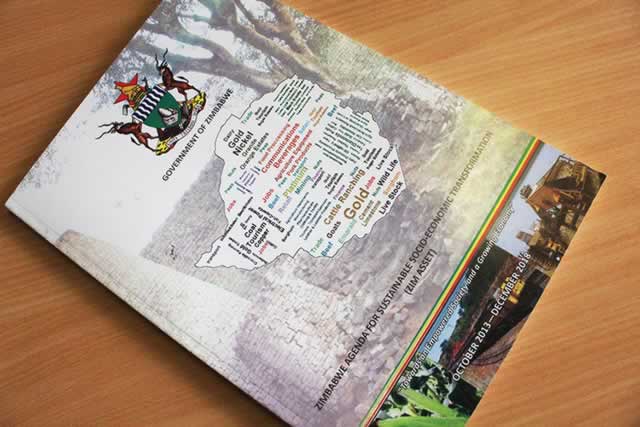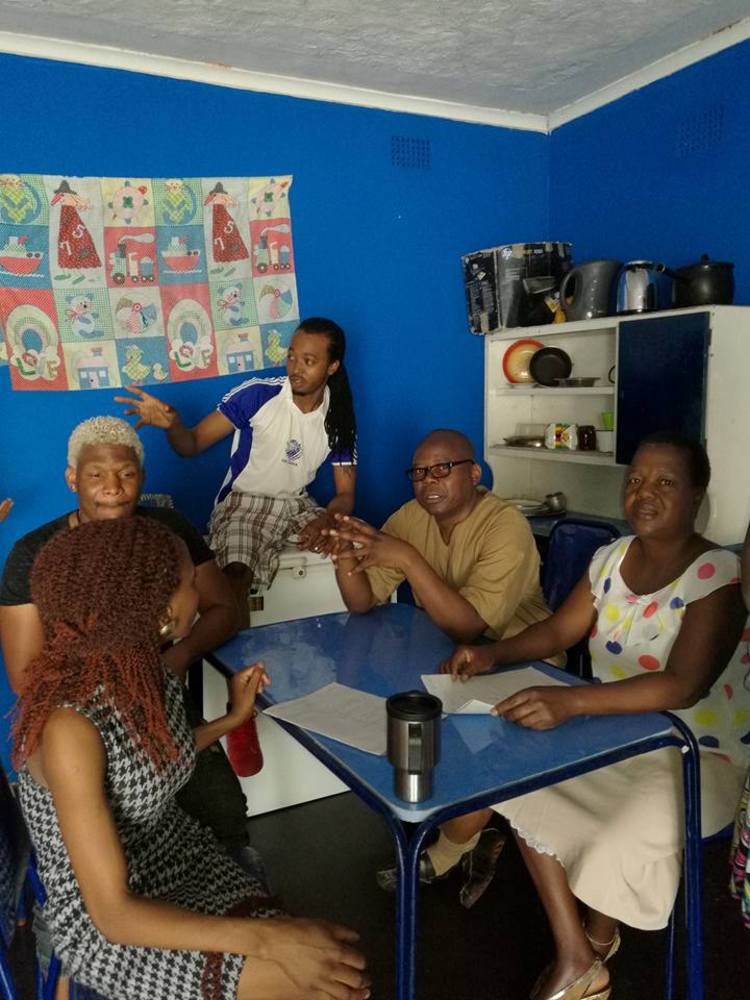Zim-Asset gets SA thumbs-up. . . as business delegation jets in for talks

Lloyd Gumbo Senior Reporter—
The Zimbabwe Agenda for Sustainable Socio-Economic Transformation is set to get a major boost with the arrival of a delegation from South Africa’s Export Credit Insurance Corporation (ECIC) yesterday to explore business opportunities in infrastructure and beneficiation projects that it can underwrite. ECIC chief executive officer Mr Kutoane Kutoane, who is accompanied by head of business development Mrs Portia Dube, said Zim-Asset had a lot of opportunities that South African manufacturers could be interested in.
The team is expected to meet officials from various Government ministries and the private sector during a three-day tour starting today.
In an interview with The Herald yesterday, Mr Kutoane said projects they had underwritten in Zimbabwe include the Plumtree-Harare-Mutare highway, an Agribank credit line, Econet’s network infrastructure and Grindrod’s locomotives leased to GPR Leasing.
“We are here to see how we can leverage on the plans that are in place especially if you look at Zim-Asset and the kind of initiatives that are being pursued through that programme,” said Mr Kutoane.
“We also know that most of the projects, especially those that relate to the core of the economy, being infrastructure projects, require a lot of underpinning of political will, that is Government support and that is very elaborate in the Zim-Asset,” he said.
“We are very much aware of the challenges that Zimbabwe specifically presents due to the fault not of Zimbabweans but in terms of economic sanctions that have been blatantly imposed on Zimbabwe, which have actually impacted negatively on the country’s ability to raise the necessary developmental capital.”
Mr Kutoane said both Zimbabwe and South Africa stood to benefit from their economic collaboration as enunciated by President Mugabe and President Zuma when they paid reciprocal State visits in 2015 and last year respectively.
“We have actually been participating in those Zimbabwe-South Africa business forums and most of the projects that have been promoted here are projects that are in Zim-Asset,” said Mr Kutoane.
“There is a lot of interest from South Africa in these programmes. I think you can also view my visit here as being a follow-up to those particular exchanges that have taken place at the high level,” he said.
“At the moment, we are trying to drill these things to realisable programmes that can actually begin to take place. Once I have a feel of what is happening here, then my teams will be very active in looking at the projects that can be implemented,” he said.
He said they were interested in providing loan guarantees to various projects in mining, infrastructure, manufacturing, agro-processing, water supply and renewable energy.
“The eyes with which we view Zimbabwe are different from those of perhaps many other export credit agencies. The nature of the risks that would otherwise be considered to be unmarketable or not easy to underwrite, we have been able to underwrite,” he said.
“In actual fact, the track record we have in Zimbabwe is that we don’t have those types of defaults that people will be talking about in terms of projects that have failed. I think Zimbabwe at the moment is third on our highest exposure countries. That just demonstrates how Zimbabwe has been for South African capital. Therefore, I think we are probably the only – perhaps outside China – country that has got unlimited appetite for Zimbabwe risk,” said Mr Kutoane.
He said the only challenges that Zimbabwe has faced in the past was access to forex to repay its loans, than unwillingness to pay. It was for that reason, he said, that adopting the rand-financing of projects was being considered.
Mr Kutoane said while South African companies, the majority of which are in white hands, were reluctant to invest in Zimbabwe due to perceptions, ECIC was best-placed to get rid of that attitude.
He said after getting an appreciation of Zimbabwe’s terms and conditions of investment, they would tell South African companies that they were ready to underwrite specific projects.
“One of the key interventions that we can make as ECIC, being core underwriters of risk in these countries especially in Zimbabwe, is by saying to South African investors, ‘we are open for cover in Zimbabwe, please let’s structure a project together that we can be able to facilitate in Zimbabwe’,” he said.
“Also, we are aware that in Zimbabwe, you have robust private businesses that need to be supported, which we also facilitate that they have access to financing.
“We have a few mining projects that we have supported here and we are still looking at some, especially those that are aiming at beneficiation. I think in some of our plans, we have seen those starting to come in, which is a good thing because then you are able to address the value-addition type of programmes.
“Then we are also looking at issues around rail, both in terms of laying down the line and funding that as well as locomotives, that we have in stock. Those are the projects that we have been looking at because transportation is one of the key issues that facilitate economic transformation and development,” said Mr Kutoane.











Comments